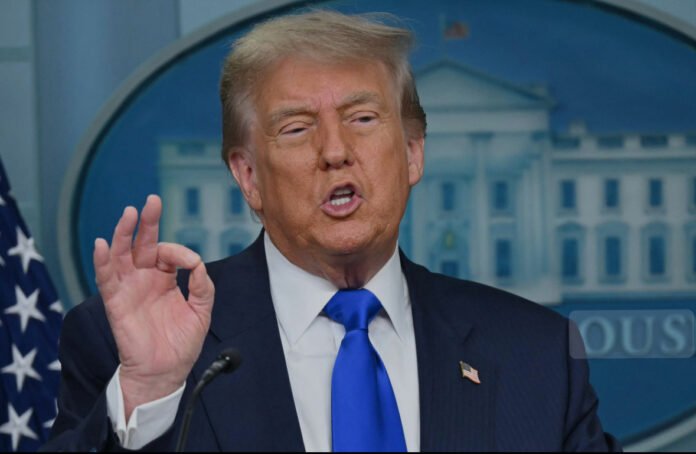WASHINGTON, (HAN) — Former U.S. President Donald Trump sharply escalated tensions Friday, accusing China of waging an “economic war” against the United States after Beijing announced sweeping new export controls on a wide range of goods.
China’s Ministry of Commerce released a formal notice stating that, effective November 1, 2025, it would impose stringent export licensing requirements on nearly all categories of goods — including components and materials not originally manufactured in China — as part of a sweeping trade defense strategy.
In response, Trump issued a forceful statement, denouncing Beijing’s move as “global economic aggression.” He vowed to retaliate by imposing 100% tariffs on all Chinese exports entering the U.S. on the same day, November 1. He also announced plans to introduce new U.S. export controls targeting advanced software and technology bound for Chinese industries.
“This is an unprecedented violation of fair trade principles,” Trump told reporters at a press conference. “Beijing has crossed every red line. The United States will respond with full force.”
News of the escalation triggered strong reactions in financial markets worldwide. Global equities and cryptocurrency prices tumbled as investors rushed into safe-haven assets amid fears of renewed trade instability.
In the U.S., the S&P 500 dropped by more than 2% in intraday trading, marking one of its biggest single-day losses since April.
Technology stocks, in particular, came under heavy pressure due to their reliance on Chinese supply chains. Meanwhile, the dollar weakened slightly against a basket of foreign currencies, and Treasury yields edged lower as demand for government debt rose.
The shockwaves weren’t limited to the U.S. — markets in Asia and Europe also shed value, especially in sectors tied to semiconductors, auto manufacturing, and green energy, which depend heavily on rare earths and electronics components.





